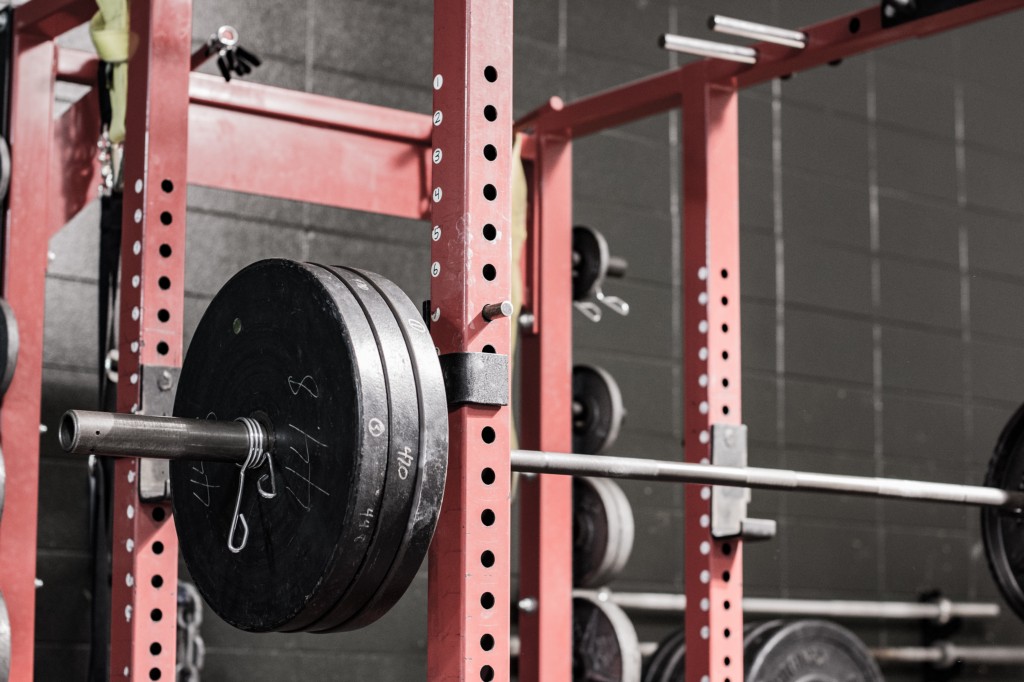When Fitness and Diet Talk Feel Toxic

Hey Swole Woman! It’s me, Lab Reports.
Here’s my problem. I don’t go to the gym because being around exercise culture in any of its forms makes my mental health worse. My physical health seems less important than my brain’s, at this point — an improvement in my lung capacity isn’t going to improve my ability to work, for example.
As a teen I ran long distance and got way too into it and went diet crazy and so on. I’m super good friends with my body now, but I kind of managed that by banning all diet talk and exercise rhetoric from my life. So, when gym people — even you, even though you’re so reasonable and sane! — talk gym stuff, it’s like I’m listening to a language whose very sound is toxic. It’s like I’m in a cloud of mustard gas and I must clamp on my gas mask of ignoring.
What should I do, your swoleness? I actually really enjoy exercising, I just cannot figure out how to find my place in its world, and vice versa.
Hi Lab Reports! You seem to have two things going on here but they’re common issues for all of us, and the second one for women in particular. To address the more general one first: you say an improvement in your lung capacity isn’t going to improve your ability to work. I respectfully disagree! And so does a lot of science. Exercise has numerous benefits for cognitive function, both in the immediate and long term. Many studies have shown exercise can reduce the symptoms of depression and calm anxiety. Getting yourself moving in one way or another has measurable impact on the rest of your life mentally and emotionally, not just physically.
I don’t always love looking at successful people for indicators of success, but many of the most powerful and busiest people in the world make a point of working out regularly. President Obama played basketball very regularly, until recently. Hillary Clinton strength-trains. Sheryl Sandberg, Elon Musk, Mark Zuckerberg. I’m sure not everyone in a position of power works out, but the possibility that the benefits of exercising outweigh the cost of time spent away from work is great enough that a lot of people whose time and mental space is infinitely valuable give it an hour or more of real estate most days. You have as many hours in the day as Beyonce, etc etc.
I’m liable to defend the non-physical benefits of working out because it’s extremely important to me mentally. Even if I knew it would never do a thing for me appearance- or strength-wise ever again, I’d still do it — that’s how much I need it. It’s a mental break from the rest of my life; don’t you ever get sick of thinking about actually important things? It’s like gaming or substances but with other benefits — it gives me a concrete Thing that I can Finish when I maybe feel stagnated in every other way, it calms me down, gives me generally more energy, helps me sleep better. This is not the same as saying that exercise fixes me, fixes any problem I have, or should fix anyone; it does not. But if I’m in a place where I can get myself out there, the difference it makes mentally and emotionally is very specifically what keeps me going back.
To the second part of your question, you say that workout talk sounds toxic to you because of your history with your body (a common situation for many women) but that you have a good relationship with your body now. I do not know you better than you, but if you want to pursue a higher level of fitness and you can’t without your mind going to a dark place, that sounds like you and your body have something more like a détente. You may be like Don and Betty Draper, who are a perfectly happy and picturesque nuclear family as long as they don’t mutually acknowledge the locked drawer of evidence that reveals Don Draper is actually a different man entirely named Dick Whitman. This is, again, not to say you are a problem in need of fixing. But don’t underestimate this kind of stuff. It’s difficult, and it needs special attention and almost definitely an assist from a therapist.
That said, dealing with this doesn’t necessarily mean you have to conform and accept the way everyone else does fitness. For instance, there are many women who, despite successful treatment of their eating disorders, cannot count calories, something that’s now a very common aspect keeping track of one’s health. But this doesn’t mean they have to avoid all fitness stuff completely. One thing I’ve seen traded around between women for whom calorie counting is triggering is a spreadsheet that tracks food types and rough quantities, rather than calories, to make sure they are eating the right amounts and getting a balanced diet without doing it in a way that triggers the impulse to restrict. To be extremely clear, I’m not saying this is a solution for you specifically (and I’m actively not linking that spreadsheet because I’m not qualified to help anyone any further than what I’m saying here). But you don’t need to shoehorn yourself into the way you see other people handling fitness, nor should you need to avoid it completely if it’s something you want.


What is the etiquette around sharing the squat rack? I try to lift heavy twice a week, but it’s hard when I can only get to the gym at peak hours and all the racks are taken. Sometimes guys are just diddling around on their phones between reps or using the squat racks to bench (why? there are other benches!), but it seems rude to ask them to move it along or give me an ETD. I’ve thought about asking to tap in / alternate between reps, but I’m not lifting anywhere near their level, so it seems impractical to unload and reload back and forth. Is the answer just to accept that I’ve missed a window and do something else? And if so, what kind of stuff should I do? — Dayna
This is tough; consider this column and this question in particular a call for all gyms to install more power racks, and for more people to open barbell clubs. In my amateur opinion, these seem like they’d be cheaper, easier to maintain, and take up less space than a roomful of weight machines. I’m really not clear why there aren’t many, many more of them.
To your particular issue — this is a very annoying part of gyms. I know it’s frustrating to see people like, messing around on their phones when they’re also taking up valuable space, but as I’ve said elsewhere, rest time between sets is important in heavy strength training, and there’s nothing else to be done about it. Judge not the resting people, lest ye be judged.
Ask A Swole Woman: Getting Started
I know “working in” (letting other people use equipment during your rests) is popular with some gyms and people, but as you point out, unless the weight you’re lifting is similar, it’s a pain in the ass to change out full-size 45lb plates every time one of you starts a new set. If you see someone lifting about as much as you and you only need to change out 10lb or 5lb plates, great; otherwise I’d skip this. I would also not advocate choosing to do something else if heavy lifting is what you want, especially if this is a systemic problem with your gym and going somewhere else or at a different time isn’t possible.
It sounds like you are in a competitive situation, so you really need to a) count on having to spend that time waiting and budget it into your life, and b) camp. When you arrive, talk to the person using the rack you want to use, ask how many sets they have left. After they tell you, go lurk somewhere in view of the rack, so you will know when they’re done. This can be a good time to do your warmups and stretch. Bring some light reading, play a game on your phone, catch up on your correspondence, call your mom, wait for them to finish. If you can’t somehow be in view, ask them if they can come find you when they’ve finished; most people will do this without complaint, and this too lets the person know you are serious about taking the rack after them and didn’t just go find something else to do, and thus makes them less likely to just give it up to whoever happens to swoop in after them.
As for the guys benching in the squat rack, or curling in the squat rack, or doing anything in the squat rack other than squatting when there are other places to do it, but no other places to squat — these are garbage humans and no one likes them, except for other people like them. This is a thing I don’t imagine even gym personnel doing a lot about, though it might be worth a try, or seeing if they’d be willing to put up a sign; gyms love signs. There is not a lot you can do about these people if you don’t feel like confronting them, except maybe being extra shady when you ask when they’ll be done curling in the squat rack.
Got a question for A Swole Woman? Email [email protected]